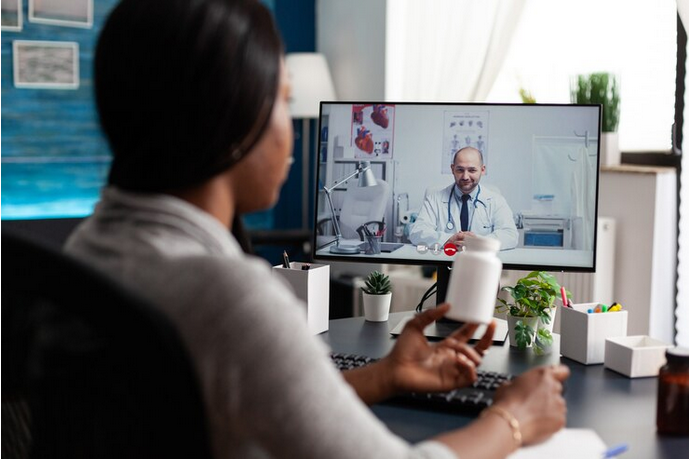The recent Healthcare Conference in New York served as a melting pot of ideas, innovations, and aspirations, providing a platform for stakeholders in the healthcare industry to converge and discuss the transformation of visionary concepts into tangible realities. The conference underscored the dynamic nature of healthcare, emphasizing the need for collaboration, innovation, and a forward-thinking approach to address the challenges and opportunities that lie ahead.
Harnessing the Power of Digital Health: A Paradigm Shift
One of the overarching themes of the conference was the pervasive influence of digital health on the landscape of healthcare. The integration of technology into various facets of healthcare delivery was highlighted as a transformative force, with a particular emphasis on electronic health records (EHRs), telemedicine, and health informatics.
Electronic health records, in particular, emerged as a cornerstone of the digital health revolution. The shift from traditional paper-based records to electronic systems not only enhances the efficiency of healthcare delivery but also facilitates seamless information exchange among different healthcare providers. This interoperability is crucial for providing comprehensive and coordinated care to patients, reducing redundancies, and minimizing errors.
Telemedicine, fueled by advancements in communication technologies, has become a linchpin in expanding access to healthcare services. The conference showcased success stories where telehealth interventions improved patient outcomes, especially in rural or underserved areas. The convenience of virtual consultations, remote monitoring, and telehealth platforms has not only transformed the patient experience but has also demonstrated its potential to alleviate the burden on healthcare systems.
Empowering Patients: The Rise of Patient-Centered Care
A paradigm shift towards patient-centered care was another notable insight from the conference. The traditional hierarchical model of healthcare, where the physician's voice often dominated, is gradually giving way to a more collaborative approach where patients are active participants in their care.
Healthcare providers are increasingly recognizing the importance of patient engagement and empowerment. Shared decision-making, patient education, and the incorporation of patient preferences into treatment plans were highlighted as essential elements of patient-centered care. The conference showcased innovative approaches, such as mobile health apps, that empower individuals to actively manage their health, track their progress, and communicate effectively with their healthcare providers.
Moreover, the conference emphasized the significance of cultural competence and diversity in healthcare. Recognizing and respecting the unique needs and backgrounds of patients is integral to providing quality care. Sessions addressing cultural competency training for healthcare professionals and the development of inclusive healthcare policies reflected the industry's commitment to fostering a healthcare environment that is sensitive to the diverse needs of the population.
Data-driven Decision Making: The Role of Analytics in Healthcare
In the era of big data, the conference shed light on the increasing importance of data analytics in healthcare decision-making. The wealth of data generated by electronic health records, wearable devices, and other health monitoring tools can be leveraged to derive meaningful insights, optimize treatment plans, and enhance overall healthcare outcomes.
Advanced analytics and machine learning algorithms were discussed as tools to predict disease trends, identify high-risk patients, and optimize resource allocation. The ability to analyze vast datasets in real-time enables healthcare providers to make informed decisions, tailor interventions, and allocate resources efficiently. The integration of analytics into clinical workflows was showcased as a powerful strategy to transform raw data into actionable insights, driving continuous improvement in healthcare delivery.
Challenges and Opportunities in Healthcare Innovation
Despite the optimism surrounding healthcare innovation, the conference also addressed the challenges that come with embracing new technologies and methodologies. Cybersecurity threats, interoperability issues, and the ethical considerations of utilizing patient data were among the concerns discussed.
The rapid pace of technological advancement necessitates a robust framework for safeguarding patient information. Cybersecurity measures, including encryption, multi-factor authentication, and regular security audits, were highlighted as essential components of any comprehensive healthcare IT strategy. The conference emphasized the need for ongoing collaboration between the healthcare industry and cybersecurity experts to stay ahead of evolving threats.
Interoperability, or the seamless exchange of information between different healthcare systems, remains a significant hurdle. The lack of standardized data formats and protocols can hinder the effectiveness of digital health solutions. Industry leaders called for concerted efforts to establish common standards that facilitate interoperability, ensuring that healthcare providers can access and share information efficiently.
Ethical considerations in healthcare innovation, especially regarding the use of patient data, were central to discussions. Striking a balance between leveraging data for improving patient care and protecting individual privacy emerged as a critical challenge. The conference emphasized the importance of transparent policies, informed consent, and robust data governance frameworks to address these ethical considerations.
Conclusion: Navigating the Future of Healthcare
The Healthcare Conference in New York provided a comprehensive overview of the transformative journey from visionary concepts to tangible realities in the healthcare sector. The convergence of digital health, patient-centered care, data analytics, and innovative technologies showcased the industry's commitment to advancing healthcare delivery.
As healthcare continues to evolve, embracing innovation and addressing challenges head-on will be crucial. The insights gained from the conference serve as a compass, guiding the industry towards a future where technology enhances accessibility, patient engagement drives positive outcomes, and data-driven decision-making becomes the norm.
In the face of challenges, the healthcare industry remains resilient, leveraging collective expertise to navigate uncharted territories. The vision of a healthcare system that is not only technologically advanced but also centered around the well-being and empowerment of individuals is gradually becoming a reality. The journey from vision to reality in healthcare is ongoing, propelled by the shared commitment of professionals, researchers, and stakeholders to build a healthier and more sustainable future.





Comments